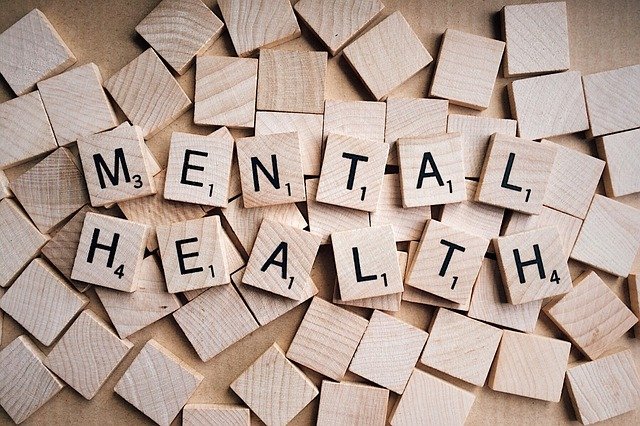Mental health consists of having a good state of mind and emotional well-being to cope with anything life throws at you. According to health experts, mental health affects your choices, feelings, relationships, and actions and goes beyond not having a mental disorder. As much as mental health affects everyday life, daily situations can also affect your mental health. Making simple changes to your lifestyle and building healthy habits can significantly impact your mental health and overall well-being. Here are some effective ways to manage mental health challenges.
Be expressive about your feelings
Bottling up your feelings could negatively affect your mental health. On the other hand, expressing how you feel can help you cope with situations better and identify what’s troubling you. Admitting your feelings doesn’t make you weak but rather makes you proactive towards prioritizing your mental health. Getting someone to talk to or writing down your feelings can help prevent you from feeling isolated and calm you down. If you’re having difficulty opening up about how you feel, you can try using different words to visualize what’s going on in your mind and how it makes you feel.
Avoid using unhealthy coping mechanisms
If you’re dealing with any mental issues, it’s best to avoid self-medicating or looking for temporary relief through drinking, smoking, etc. These may often make you feel worse after their effect wears off, still leaving the need for you to tackle the situation you’re facing. It’s best to find healthier coping mechanisms that have long-term benefits for your health. If you’re in or around Dallas and need support or counseling, you can get all the information you need on https://www.sunshinebehavioralhealth.com/texas/dallas/
Exercise regularly
Regular exercise doesn’t only benefit your physical health but also your mental health. According to health experts, exercise releases feel-good hormones into your brain, improving your mood, boosting self-esteem, and increasing concentration. Suppose you don’t have much time for vigorous exercise. In that case, you can still be active through daily activities such as dancing to your favorite music, taking a walk in the park, or regular house duties like gardening. The most important thing is to do something you enjoy, and that can help you get at least 20-30 minutes of exercise every day. Remember to eat healthily and drink lots of water in addition to your exercise.
Stay connected
Isolating yourself could make managing your mental health challenging. On the other hand, surrounding yourself with supportive family and friends can encourage you and make you feel loved and less overwhelmed when facing stressful situations. Apart from supporting you, they can help give you a fresh outlook on things and give you the human connection you need to keep going. If you’re unable to stay connected in person, there are other options to consider to help you stay in touch with them, such as video calls and online chats. As you build your human connections, it’s also essential that you avoid people who negatively impact your mental health and break off any toxic relationships.
Find The Appropriate Support
It’s important to speak to people who can help you, as there’s no shame in reaching out, in fact it takes courage to do this. However, it’s important you try and find the appropriate help you need. For instance, speaking to a doctor about post-natal depression can help you find direct support and join social groups dedicated to supporting this. The same goes for other essential issues, such as PTSD treatment for veterans, or those suffering from sudden grief.
Take time off
Sometimes, taking a step back from your busy daily routine could yield great benefits for your mental health. It doesn’t need to be anything drastic; even taking ten minutes or a day or two off can go a long way to renew your mind and give you the respite you need. Taking some time off doing something you enjoy or just having some me-time is essential for taking care of your mental health. It can either mean doing nothing at all or doing something active. If you need an activity that will quiet your mind, you can try relaxation exercises such as yoga and meditation, which help to calm you down. It’s all about taking some time to relax and providing a healthy environment for your health. As a plus, doing this will also boost your self-esteem.
Understanding hearing loss' effect on mental health challenges
In managing mental health challenges, it's crucial to recognize the connection between hearing loss and overall psychological well-being. Hearing impairment can contribute to social isolation, depression and anxiety - further exacerbating existing mental health conditions. Consultation with a licensed audiologist is an invaluable step toward mitigating such risks. Professional audiologists can assess hearing health, provide personalized solutions, and recommend hearing aids or therapeutic strategies to enhance communication abilities. Addressing hearing issues as part of mental health care can significantly enhance quality of life while leading to positive mental health outcomes.
Accept yourself for who you are
Your self-perception could affect your mental health. If you view yourself negatively, you may end up not putting much effort into doing things beneficial to your mind and your body. It would help if you focused on the things that make you stand out instead of comparing yourself to others. You can also speak positive words to yourself every morning to help improve how you view yourself. Doing this boosts your mental health. It also makes you feel good about yourself and allows you to celebrate your unique traits. It will also prevent you from being too hard on yourself in challenging situations and help you see the good side of things.









0 comments:
Post a Comment
Feel free to share your thoughts. However, kindly refrain from adding links in your comments because they will be marked as spam and filtered out. Thank you!